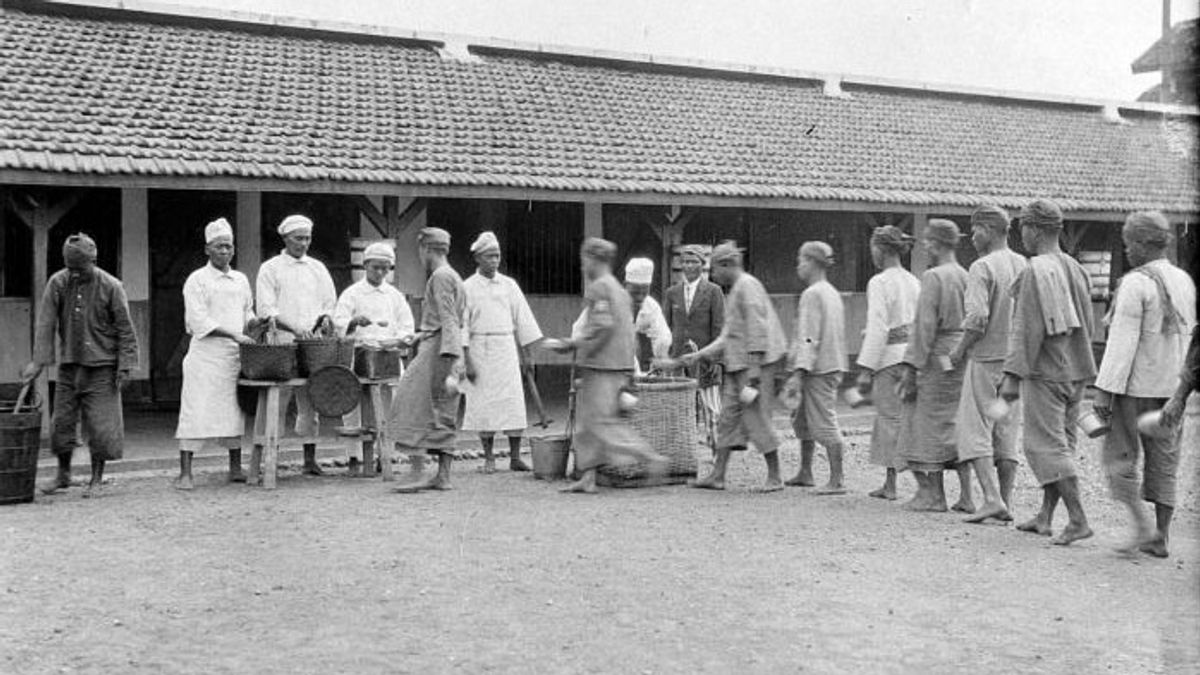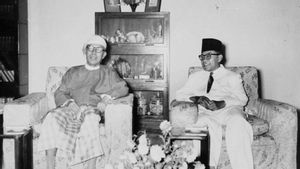JAKARTA - The colonial government of the Dutch East Indies has never really managed prisons. The maximum service is only extended to the upper class, while the poor Europeans and bumiputra get nothing. The practice of bribery (extortion) also lasts forever because of it.
Those who want to pay more will get maximum service. Practice is common knowledge. This is because anyone who wants money or guards will consider money as their new boss. The matter of loyalty to the authorities may not be a number that is very important.
The image of law enforcement in the style of the Dutch trading airline, the VOC was never good. They perpetuate legal decisions according to the orders of the authorities, not legal experts. Even then, high-ranking officials often perpetuate the intervention of punishment for people accused of crimes.
As a result, the sentence only relates to the death penalty or prison sentence. The problem didn't end there. The matter of going to prison is not an easy matter. Prison conditions that are far from worthy to be the estuary.
The limitations of the guard supervisors are still limited as another problem. This condition made prisons like nets. Many holes can be accessed by prisoners to escape. However, the wind of change began to blow when the VOC passed power with the Dutch East Indies government.
The power of attorney has begun to create a clear structure and rank for prison officers. Each prison will be chosen by officers who will fill the positions of directors, guards, or guards. This function makes the job of controlling prisons easy.
The presence of the supervisor made the owner of power able to flexiblely distinguish between bumiputra prisoners and European prisoners. High-end European prisoners will be treated with a slightly more appropriate treatment. While the bumiputras are treated like heavyweight criminals. In fact, the crimes committed by the bumiputras and Europeans are often not much different.
So each of the prisons has its employees who are appointed by the state with the rank of director, guards, or guardians. These employees take care of the fragility and cleanliness of the equipment in prison as being prosecuted by the state, so that it is intended by law.
"They should make a list of the names of the people being trapped, and observe who among the punishment people is no longer good at their behavior, so he should tell this one to the head of the district (district level) who is authorized to torture that person. So bring you forced work, which is less than a year old, must be held accountable where the place where he is a person has been convicted," wrote Tirto Adhi Soerjo as quoted by Iswara N. Raditya, Muhidin M. Dahlan in the book Karya-Karya Complete Tirto Adhi Soerjo: Press, Movement, and Nationality (2008).
The poor treatment experienced by Dutch East Indies prisoners was inevitable. Especially if the prisoner is a native. This status makes bumiputra prisoners, especially when poor Europeans become the object of the anger of guards and prison guards.
However, this treatment can be anticipated in various ways. First, prisoners must be good at taking the hearts of prison guards. Second, prisoners perpetuate the practice of bribery to supervisors. These efforts last over time, even extortion matters have become a common sight.
The practice of extortion can also make most guards or guards who initially hated prisoners good. They become sellers of versatile services. All because many of the prison supervisors believe money is everything.
All kinds of prisoner needs. From newspapers to food can be granted. It is also a matter of extending the time of visiting prisoners. Many of the prison supervisors are not afraid of their superiors. This is because the matter of loyalty is only shown by prison supervisors to those who have money.
There are some Dutch officers who feel that we are not to blame for committing a crime, because they love independence. They are even familiar with us. In addition, he wants to do something as long as he is given money. Anything. "
"In fact, it doesn't need to be given much attention. At first I thought that they were very afraid of their position to accept bribes, but it turned out that they were among the low types, who wanted to betray the principles of their principles very cheaply. For a bottle of beer, "said Soekarno as written by Cindy Adams in the book Bung Karno: Connecting the Tongue of the Indonesian People (2014).
SEE ALSO:
The English, Chinese, Japanese, Arabic, and French versions are automatically generated by the AI. So there may still be inaccuracies in translating, please always see Indonesian as our main language. (system supported by DigitalSiber.id)
















